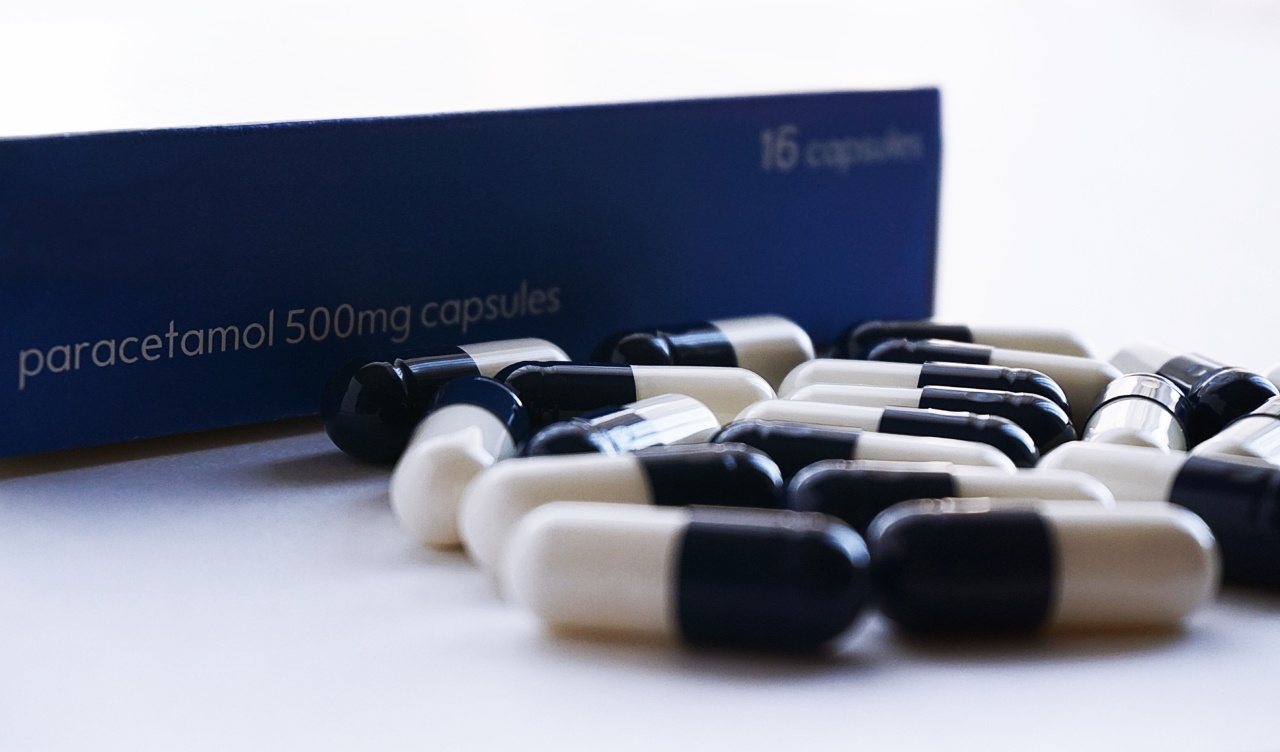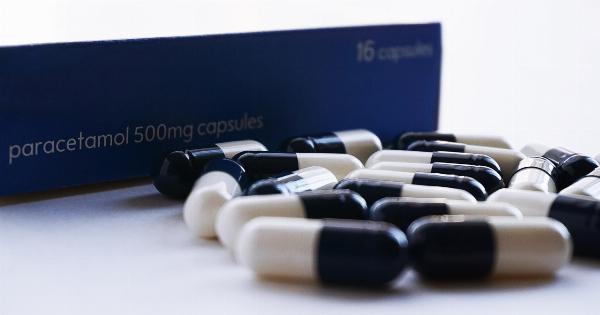Multiple sclerosis (MS) is a chronic autoimmune disease that affects the central nervous system.
It is characterized by the immune system mistakenly attacking the protective covering of nerve fibers, leading to communication problems between the brain and the rest of the body. The symptoms of MS can vary widely, ranging from mild fatigue and difficulty walking to more severe issues such as paralysis and cognitive problems.
However, advancements in medical research and innovative drug therapies have revolutionized the treatment of this debilitating condition. In this article, we will explore how innovative drugs are changing the lives of multiple sclerosis patients.
Understanding Multiple Sclerosis
Before delving into the impact of innovative drugs, it is important to have a basic understanding of multiple sclerosis. MS is believed to be caused by a combination of genetic and environmental factors.
The immune system mistakenly attacks the protective covering of nerve fibers, called myelin, in the central nervous system. This disrupts the flow of electrical impulses between the brain and the body, leading to a wide range of symptoms.
Common symptoms of MS include:.
- Fatigue
- Numbness or tingling in the limbs
- Difficulty walking
- Muscle weakness
- Problems with coordination and balance
- Blurred or double vision
- Cognitive difficulties
The severity and progression of MS can vary greatly from person to person. Some individuals experience mild symptoms that do not significantly impact their daily lives, while others may become severely debilitated.
The Evolution of MS Treatment
Over the years, the treatment landscape for multiple sclerosis has evolved significantly. Initially, treatment options were limited to managing symptoms and providing supportive care.
However, with advancements in medical research and technology, innovative drugs have emerged that target the underlying disease process.
Disease-modifying therapies (DMTs) have revolutionized the treatment of MS.
These drugs work by modulating the immune system to reduce inflammation, prevent relapses, and slow down the progression of the disease. DMTs have shown remarkable efficacy in reducing relapse rates and preventing or delaying disability progression in MS patients.
Types of Innovative Drugs for Multiple Sclerosis
There are several types of innovative drugs that have been approved for the treatment of multiple sclerosis. These include:.
1. Interferon-beta
Interferon-beta drugs, such as Avonex and Betaseron, are injected into the muscle or under the skin to reduce inflammation and regulate the immune response.
These drugs have been shown to reduce relapses and slow down the progression of disability in MS patients.
2. Glatiramer acetate
Glatiramer acetate, also known as Copaxone, is another injectable medication that helps modulate the immune response. It has been found to reduce relapse rates and delay disability progression in MS patients.
3. Dimethyl fumarate
Dimethyl fumarate, marketed as Tecfidera, is an oral medication that reduces inflammation and oxidative stress in the central nervous system. It has been shown to significantly reduce relapse rates and slow down disability progression.
4. Fingolimod
Fingolimod, sold under the brand name Gilenya, is an oral drug that prevents certain immune cells from entering the central nervous system.
It has been proven to reduce relapse rates, delay disability progression, and decrease brain lesion formation in MS patients.
5. Natalizumab
Natalizumab, also known as Tysabri, is a monoclonal antibody administered intravenously to prevent immune cells from crossing the blood-brain barrier. It has demonstrated high efficacy in reducing relapses and slowing down disability progression.
However, its use is associated with a rare but serious side effect called progressive multifocal leukoencephalopathy (PML).
6. Alemtuzumab
Alemtuzumab, sold as Lemtrada, is an intravenous infusion that targets specific immune cells responsible for attacking myelin.
It has shown significant effectiveness in reducing relapses and disability progression, although it can have serious side effects that require careful monitoring.
7. Ocrelizumab
Ocrelizumab, marketed as Ocrevus, is a monoclonal antibody that selectively targets B cells, a type of immune cell involved in the development of MS.
It has been shown to reduce relapse rates, slow down disability progression, and decrease the accumulation of disability-related brain lesions.
8. Siponimod
Siponimod, under the brand name Mayzent, is an oral medication that targets specific immune cells involved in the inflammatory process of MS.
It has demonstrated efficacy in reducing relapse rates and slowing down disability progression in certain patients with secondary progressive MS.
9. Cladribine
Cladribine, sold as Mavenclad, is an oral medication that selectively targets immune cells responsible for the inflammation in MS. It has shown efficacy in reducing relapse rates, restoring neurological function, and preventing disability progression.
10. B-cell therapies
B-cell therapies, such as rituximab, ofatumumab, and ublituximab, target B cells involved in the pathogenesis of MS. They have shown promising results in reducing relapses and slowing down disability progression.
Benefits of Innovative Drugs
The availability of innovative drugs has brought numerous benefits to individuals living with multiple sclerosis. These drugs have transformed the management of the disease by:.
- Reducing the frequency and severity of relapses
- Slowing down the progression of disability
- Improving quality of life
- Increasing the time between relapses
- Preventing new brain lesions
- Enhancing cognitive function
- Offering more convenient administration options
Furthermore, innovative drugs have opened up opportunities for personalized medicine in MS treatment.
With a better understanding of the underlying disease mechanisms and individual patient profiles, healthcare providers can tailor treatment plans to maximize therapeutic outcomes while minimizing side effects.
Challenges and Considerations
While innovative drugs have undoubtedly revolutionized the treatment of multiple sclerosis, they do come with certain challenges and considerations. Some of the key factors to keep in mind include:.
1. Efficacy vs. Side Effects
Each drug carries its own balance of efficacy and potential side effects.
The decision to initiate a particular therapy should be based on a comprehensive evaluation of the patient’s medical history, disease stage, and individual risk-benefit profile.
2. Cost and Accessibility
Some innovative drugs can be expensive, making them inaccessible for certain individuals or healthcare systems. Ensuring equitable access to these life-changing therapies is an ongoing challenge that needs to be addressed.
3. Continuous Monitoring
Ongoing monitoring of treatment efficacy and safety is crucial for MS patients.
Regular assessments, including clinical examinations, imaging, and laboratory tests, help healthcare providers make informed decisions regarding treatment adjustments or switching therapies if necessary.
4. Compliance and Adherence
Some innovative drugs require regular administration, often in the form of injections or infusions. Ensuring patient compliance and adherence to the prescribed treatment regimen is essential for optimal therapeutic outcomes.
The Future of MS Treatment
As research in the field of multiple sclerosis continues to advance, the future of MS treatment looks promising.
Scientists and pharmaceutical companies are constantly exploring new therapeutic targets and developing innovative drugs that offer even greater efficacy, safety, and convenience.
Emerging areas of research include gene therapy, stem cell transplantation, and the use of nanoparticles to deliver drugs directly to affected areas of the central nervous system.
These cutting-edge approaches hold immense potential in further improving the lives of multiple sclerosis patients.
In Conclusion
Innovative drugs have revolutionized the lives of multiple sclerosis patients by offering effective disease-modifying therapies that reduce relapse rates, slow down disability progression, and improve overall quality of life.
The availability of these treatments has provided hope and improved outcomes for individuals living with this chronic autoimmune disease. However, challenges related to accessibility, cost, and ongoing monitoring need to be addressed to ensure that all patients have equal access to these life-changing therapies.
With ongoing research and advancements in medical science, the future of MS treatment holds even greater promise for further improving patient outcomes and transforming countless lives.































